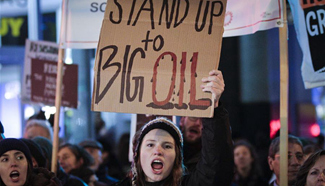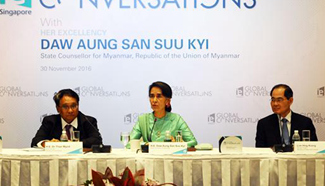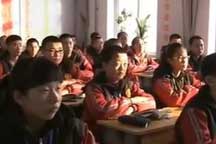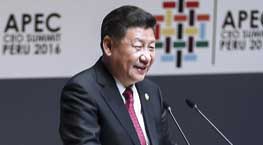MOSUL, Iraq, Nov. 30 (Xinhua) -- Iraqi security forces on Wednesday fought Islamic State (IS) militants in the city of Mosul and liberated another district in the city, while a UN humanitarian organization warned of the humanitarian situation in eastern Mosul.
After nearly six weeks of a major offensive to drive out the extremist militants from Mosul, the commandos of the Counter-Terrorism Service (CTS) continued fighting heavy clashes with the IS militants in eastern Mosul, a statement by the Iraqi Joint Operations Command (JOC) said.
The troops managed on the day to free the district of al-Ekhaa and raised the Iraqi flag over some of its buildings, the statement said.
The troops inside Mosul were met by stubborn resistance from the extremist militants, who are fighting in small groups and moving quickly throughout the districts in the eastern side of the city, locally named the left bank of the Tigris River that bisects the city.
The extremist groups frequently infiltrated behind the advanced CTS forces using tunnels or dozens of houses and buildings.
In west of Mosul, the predominantly Shiite Hashd Shaabi units freed the villages al-Salhiyah and Bootha al-Sharqiyah near the IS-held town of Tal Afar, some 70 km west of Mosul, after heavy clashes with IS militants, according to a statement by the Hashd Shaabi.
The presence of the Hashd Shaabi units near Tal Afar enabled them to cut off IS supply routes from the west side of Mosul, and allowed both the paramilitary units and other Iraqi and Kurdish security forces to entirely isolate and surround Mosul.
The units' presence in the whole area in west of Mosul would also enable them to secure the border areas between Iraq and neighboring Syria and would cut off the IS supply routes between Mosul and the Syrian city of Raqqa, the capital of IS self-declared caliphate.
Also on the day, Hashd Shaabi spokesman Yousif al-Kilabi said in a statement that "the order for the Hashd Shaabi is to isolate and encircle Tal Afar, while the army's 15th Division will storm and liberate the center of the town later."
"The Hashd Shaabi units are tasked with surrounding the cities like what happened in Fallujah, but the tasks of storming the city of Mosul and the town of Tal Afar will be for the army and other forces, according to the distribution of missions decided by the General Command of the Iraqi Armed Forces," Kilabi said.
Earlier in the day, the UN Children's Fund (UNICEF) warned that almost half of Mosul's children and their families no longer have access to clean water as clashes between IS militants and Iraqi security forces trying to recapture the Iraqi city intensify.
"Children and their families in Mosul are facing a horrific situation," the UNICEF representative in Iraq, Peter Hawkins, said in a statement.
"Not only are they in danger of getting killed or injured in the cross fire, now potentially more than half a million people do not have safe water to drink," he added.
According to the UNICEF, a major pipeline serving eastern districts of the northern city was destroyed amid ongoing military operations.
The conduit in question, one of three pumping water to eastern parts of the war-torn city, is impossible to repair quickly given that it is located in parts of Mosul still under IS control.
The UNICEF said that Iraqi authorities are ferrying water to civilians with trucks, though this temporary measure is not enough to meet the needs of residents.
According to the UN body, civilians will have no choice but to resort to unsafe water resources if the pipeline is not repaired in the coming days.
This would put children in particular at risk of contracting waterborne diseases such as severe diarrhea and the threat of malnutrition.
"The UNICEF urges all parties to the conflict to allow these critical deliveries and repairs. Civilian infrastructure must never be attacked," Hawkins reminded.
Also on Wednesday, the Unites Nations Office for Coordination of Humanitarian Affairs (OCHA) said in a report that after nearly six weeks of military operations against IS militants in Mosul, almost 73,908 civilians have fled their homes in Mosul and nearby areas and the number goes up every day.
The OCHA also warned that "supplies of food and potable water are dwindling in eastern Mosul city. Civilians close to the front lines face the threat of IS snipers, leading to rising casualties. As many as one million people are estimated to remain out of reach."
Iraqi Prime Minister Haider al-Abadi on Oct. 17 announced a major offensive to retake Mosul, the country's second largest city.
Since then, the Iraqi security forces have inched to the eastern fringes of Mosul and made progress on other routes around the city.
Mosul, some 400 km north of the Iraqi capital of Baghdad, has been under the IS control since June 2014, when Iraqi government forces abandoned their weapons and fled, enabling IS militants to take control of parts of Iraq's northern and western regions.










